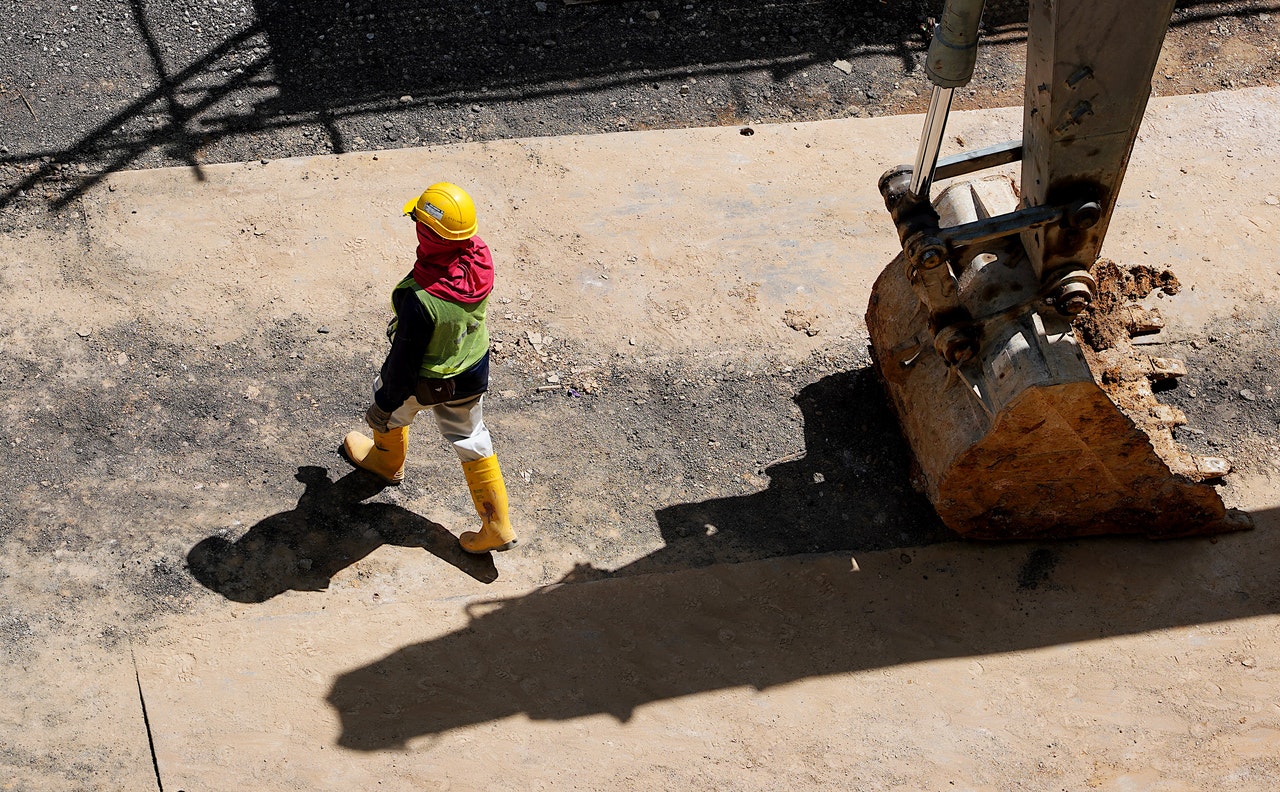Canada News
Canadian mining project in Guatemala opposed in local vote over environmental concerns

Historically, communities closest to mining projects suffer severe consequences. (Pexels photo)
In a recent historic move, locals from Asunción Mita, Guatemala, voiced their opposition in a referendum on the mining projects that have affected their community for decades. Eighty nine per cent of them voted “no” to the development of mining activities, like the Cerro Blanco gold and silver open-pit mine owned by Bluestone Resources — a Canadian mining company — in a municipal consultation held last month.
The arsenic used in the proposed open-pit mine’s gold extraction process can cause toxic leaching
and long-lasting contamination that affects the supply of water for drinking, agriculture and cattle rearing by local communities.
Despite the resistance, Bluestone Resources, Guatemala’s Ministry of Energy and Mines and a local pro-mining group tried to contest the legality of the voting process in an attempt to illegitimize it.
While this consultation is binding for the municipal council and the mayor — responsible for issuing local mining permits — the Guatemalan Constitutional Court nullified the consultation results after an injunction filed by a Bluestone Resources subsidiary, Elevar Resources.
The community, along with social and environmental organizations in the neighbouring countries of El Salvador and Honduras, plan to take the consultation case to the Inter-American Court of Human Rights. Local consultations like these remain the most effective instrument for communities to express their consent, and they need to be supported.
From tunnel to open-pit mining
After denying Goldcorp, the former owner of Cerro Blanco, a licence to conduct large-scale mining projects due to scarce and inconsistent information on environmental impacts, Guatemala’s Ministry of Environment and Natural Resources granted the mining company a 25-year licence in 2007.
The ministry approved an Environmental Impact Assesment that overlooked the concerns, such as the pollution of the Lempa river, presented by the Guatemalan MadreSelva environmental collective and locals from Asunción Mita. Goldcorp was, however, unable to extract minerals from these tunnel mines due to heat and other issues.
Bluestone Resources took over the mine from Goldcorp in 2017. In November 2021, the company submitted a permit amendment application — spanning more than 3,000 pages — that spoke of an open pit rather than a tunnel-mining extraction process.
While the tunnel mine would extract thermal water, flowing at a temperature of 80 C to 120 C with a high content of arsenic and heavy metals, the recently approved open pit mining uses a dry stack tailings storage technique. The silty, sandy material left over after metal extraction, called filter tailings, are compacted in a mound and stored at the base of a dam in upstream construction methods.
When waterlogged, the tailings can liquefy and reduce the friction that binds an earthen dam together, risking disastrous collapses. That’s why this method has been banned in Chile and Brazil in South America.
Strategic support in the consultation process
Historically, communities closest to mining projects suffer severe consequences.
Julio González, from the MadreSelva environmental collective, says Bluestone Resources has publicly stated there’s local support for the project, blaming any opposition on external sources. But local organizations collected more than 4,000 signatures from registered voters to request the municipal authorities of Asunción Mita to carry out a consultation.
These groups have been receiving the support, advice and inspiration from the Central American Alliance Against Mining, Salvadoran and Guatemalan Catholic Church representatives and Pope Francis’s letter, Laudato Si.
Preparing a plan for any major extractive project requires consulting affected Indigenous groups in the area. The lack of consultation in the mining industry, as in Asunción Mita, has added to socio-environmental conflicts in Guatemala.
Lack of consultation
Until now, the Guatemalan government has never conducted a consultation before awarding an extraction license.
But it started suspending the licences of mines that failed to secure community support through consultation following the International Labour Organization Convention 169 that requires “governments to respect the traditional values of tribal and Indigenous peoples and to consult with them on decisions affecting their economic or social development.” Guatemala ratified it in 1996.
This was evident when the Guatemalan constitutional court suspended the mining license for Fénix nickel mine in 2019 and ordered a consultation.
The Ministry of Energy and Mines plans to begin consultations on previously licensed projects such as Kappes, Cassiday & Associates’ Tambor gold asset and 24 other non-metallic mining projects.
Transboundary necessities
Cross-border issues, like shared watersheds and climate change, have started new and crucial discussions on the sovereignty and safety of natural resources. The Cerro Blanco mining activity in Guatemala poses a great threat to El Salvador and Honduras as well because they rely on the Lempa river to meet the water requirements of their 3.8 million residents.
Bluestone Resources said an independent international consulting firm collected data from locals and found “a positive attitude toward the project.” The company obtained the support of some locals by investing in infrastructure, education and promises of employment, creating divisions within the community as those who oppose the mine are stigmatized and further marginalized.
Establishing a regional agreement about the Cerro Blanco mine’s impact on the Ostua basin, Lake Guija and the Lempa river, in the Trifinio-Fraternidad Transboundary Biosphere, is crucial.
Local citizens need to be able to exercise their constitutional right to participate in the consultation process for projects in their neighbourhoods that affect their environment, health and well-being. They need to be able to convey the voice of their community across borders.
The tendency to under-report social conflict in Latin America to foreign investors, including those of Canadian mining companies, needs to change.
Canadian shareholders and concerned citizens should be aware of the impact and inadequacy of their mining companies in meeting international standards. And all of this starts with community consultation.![]()
Giada Ferrucci, PhD Candidate, Media Studies, Western University
This article is republished from The Conversation under a Creative Commons license. Read the original article.





















